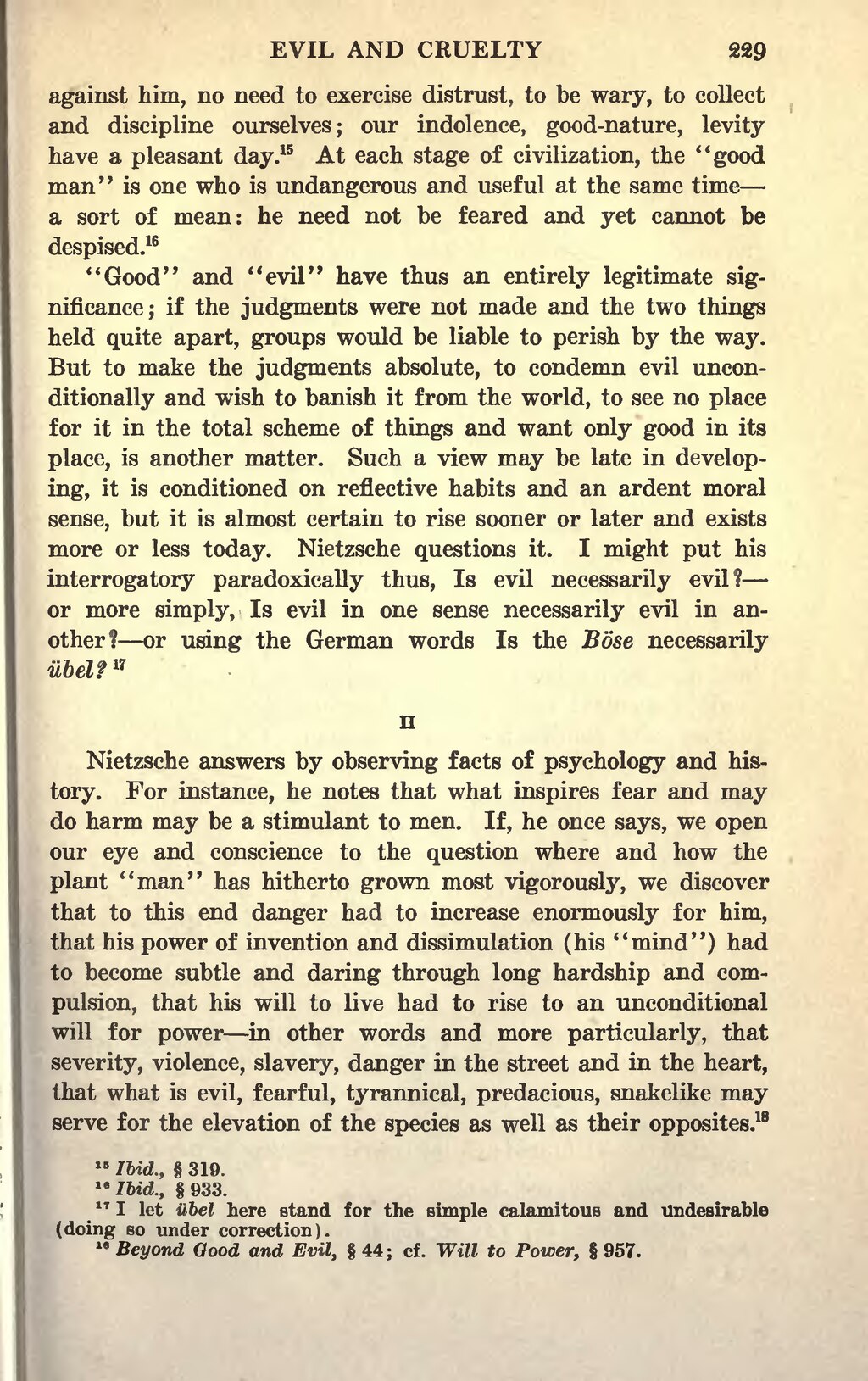against him, no need to exercise distrust, to be wary, to collect and discipline ourselves; our indolence, good-nature, levity have a pleasant day.[1] At each stage of civilization, the "good man" is one who is undangerous and useful at the same time—a sort of mean: he need not be feared and yet cannot be despised.[2]
"Good" and "evil" have thus an entirely legitimate significance; if the judgments were not made and the two things held quite apart, groups would be liable to perish by the way. But to make the judgments absolute, to condemn evil unconditionally and wish to banish it from the world, to see no place for it in the total scheme of things and want only good in its place, is another matter. Such a view may be late in developing, it is conditioned on reflective habits and an ardent moral sense, but it is almost certain to rise sooner or later and exists more or less today. Nietzsche questions it. I might put his interrogatory paradoxically thus, Is evil necessarily evil?—or more simply, Is evil in one sense necessarily evil in another?—or using the German words Is the Böse necessarily übel?[3]
II
Nietzsche answers by observing facts of psychology and history. For instance, he notes that what inspires fear and may do harm may be a stimulant to men. If, he once says, we open our eye and conscience to the question where and how the plant "man" has hitherto grown most vigorously, we discover that to this end danger had to increase enormously for him, that his power of invention and dissimulation (his "mind") had to become subtle and daring through long hardship and compulsion, that his will to live had to rise to an unconditional will for power—in other words and more particularly, that severity, violence, slavery, danger in the street and in the heart, that what is evil, fearful, tyrannical, predacious, snakelike may serve for the elevation of the species as well as their opposites.[4]
